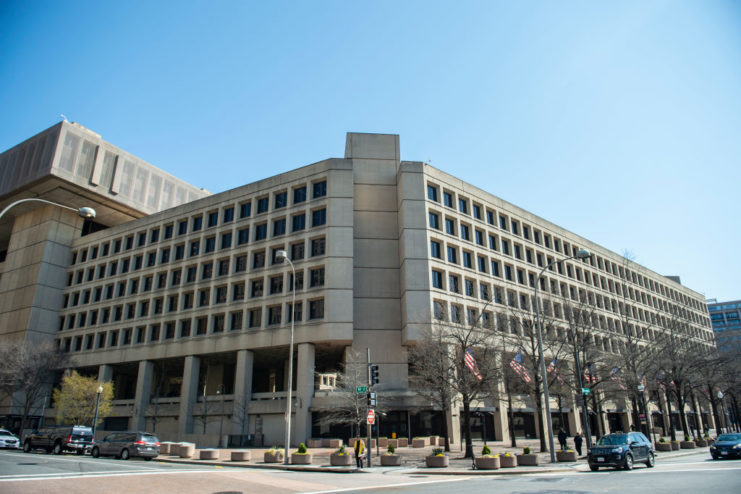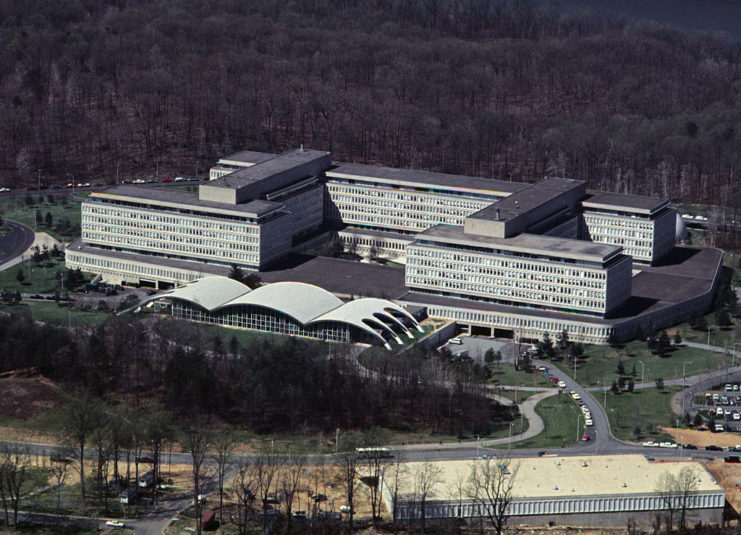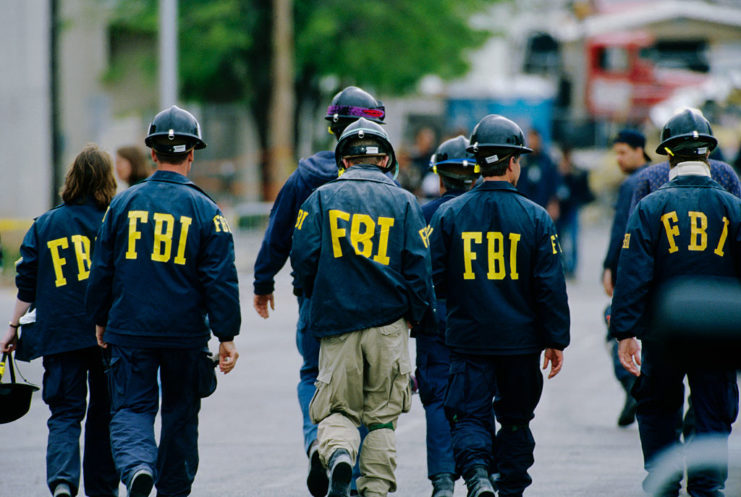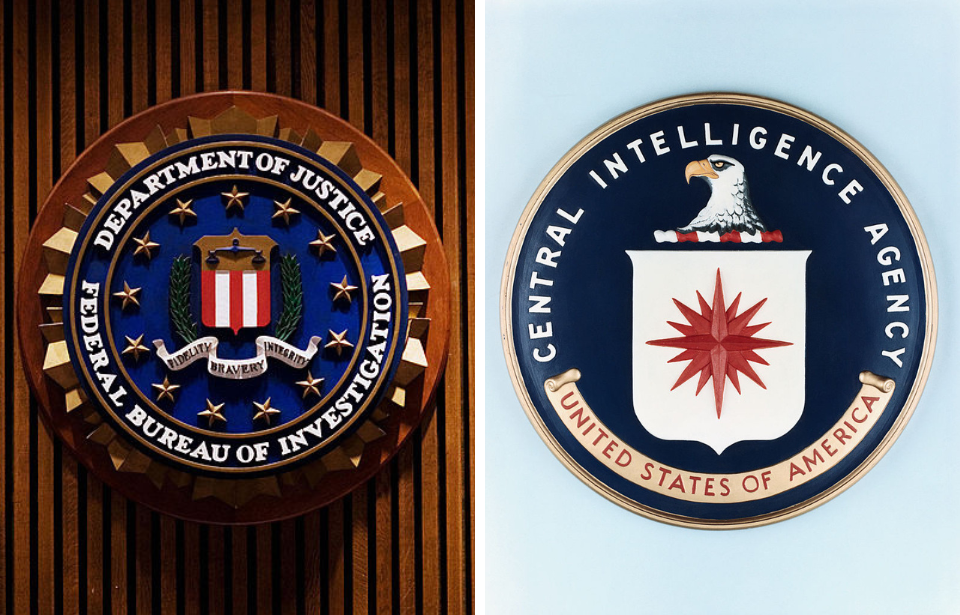If you’ve ever watched the news during an international crisis or a threat to American soil, you’ll have undoubtedly heard of both the Federal Bureau of Investigation (FBI) and the Central Intelligence Agency (CIA). Both government agencies work to defend the security of the United States. However, have you ever wondered what the difference is between the FBI and CIA? This is how the two agencies differ and where their individual focuses lie.
Federal Bureau of Investigation (FBI)

The predecessor to the FBI was founded by President Theodore Roosevelt in 1908, much earlier than the CIA. The main purpose of the Bureau of Investigation (BOI) was to provide additional support to local police officers as they investigated crime, while simultaneously helping to reduce the corruption that might occur during said investigations. Between 1933-35, the organization was called the Division of Investigation (DOI), before eventually being given its present name.
Over the course of its early life, the FBI investigated a number of illegal activities, including the bypassing of Prohibition, espionage, organized crime and homicide, leaning heavily on the use of wire tapping during the early-to-mid 20th century. The agency was also responsible for the internment of Japanese-Americans during the Second World War, and spent a large portion of the Civil Rights Movement investigating major leaders, including Martin Luther King Jr.
As the world became more technologically advanced, the FBI began to more heavily investigate terrorism activity both within and against the United States.
The FBI was shaped by J. Edgar Hoover, who served as director of the BOI, DOI and FBI from May 10, 1924 – May 2, 1972. Hoover’s greatest contributions were increasing the influence of the agency and creating centralized forensic laboratories and fingerprint files, which continue to be used today. He even expanded the FBI Index, which was used to track American citizens prior to the advent of computer technology.
Hoover’s impact was so great that the current FBI building in Washington, DC is named for him.
Central Intelligence Agency (CIA)

The CIA was initially founded as the Office of Strategic Services (OSS) in 1942 with the purpose of gathering intelligence and staging special operations during the Second World War. It wasn’t until 1947, two years after the conflict ended, that President Harry Truman decided to make the agency a permanent feature, signing the National Security Act.
After its creation, the CIA continued to focus on many of its World War II-era goals and set up partnerships with intelligence agencies in other countries. In doing so, agents became involved in many overseas events, including terrorist attacks and assassinations. That being said, its early years were far from successful, with one of its biggest blunders being the failure to predict the Chinese entry into the Korean War.
While the CIA began to see some success, including influencing the 1948 Italian election, issues still arose toward the middle of the 20th century, as shown through the failed Bay of Pigs Invasion. This prompted the reorganization of the agency, greatly aiding in the repair of its reputation during the Vietnam War and throughout its domestic espionage efforts.
Following 9/11, the agency grew in size, resulting in it receiving the biggest budget of any intelligence group in the US.
As of 2022, the CIA defines its mission, “To stop threats before they happen and further US national security objectives, we: collect foreign intelligence; produce objective analysis; and conduct covert action, as directed by the president.” The agency also emphasizes that it doesn’t make policies. Rather, it provides “an independent source of information” for those who do.
Difference between the FBI and CIA

The primary difference between the the FBI and CIA comes down to who they combat as a security threat. The former focuses primarily on domestic threats, where the latter is more interested in international ones. In fact, the CIA is actually prohibited from collecting any intelligence on Americans. Additionally, it doesn’t have the FBI’s law enforcement function.
The CIA has a far larger budget than the FBI – $18 billion in 2016 versus $8.8 billion. The agency is also cleared for covert action, unlike the FBI. This doesn’t come as a surprise, however, as the CIA operates a vast worldwide network of unknown size. On the other hand, the FBI works in more of a law enforcement capacity, with roughly 35,000 employees.
Specific focuses

Each agency has its own areas of focus, with little cross over between the two. Presently, the FBI investigates cyber crime, terrorist threats, civil rights issues, corruption of public officials, weapons of mass destruction (WMDs) and counterintelligence. It also focuses on white collar and major crimes that are outside the scope of local law enforcement agencies.
Generally speaking, the FBI is who you’d expect to find knocking at your door if you came under suspicion for crimes against the country. While the CIA also focuses on counterintelligence and counterterrorism, these are among the only similarities. The agency primarily focuses on arms control, drug trafficking, nuclear nonproliferation and international organized crime, all with the aim of protecting the nation from international threats.
More from us: A Naval Academy ‘Assault Team’ Once Stole West Point’s Treasured Mules and Were Awarded for It
As different as both agencies are, their goals align when it comes to protecting America and its interests. In fact, agents will frequently work together when their cases cross between their jurisdictions, and it’s common for both the CIA and the FBI to share information when the need arises.
